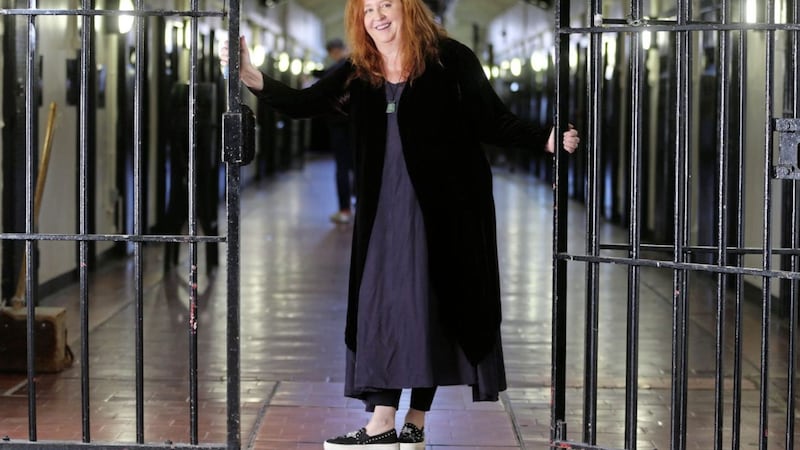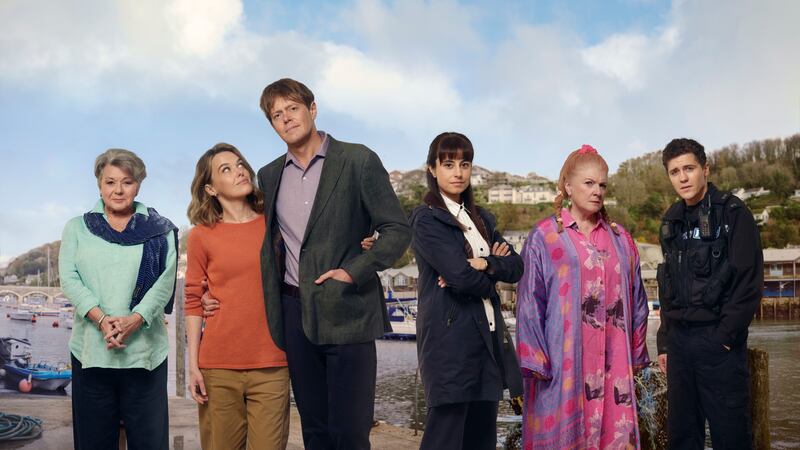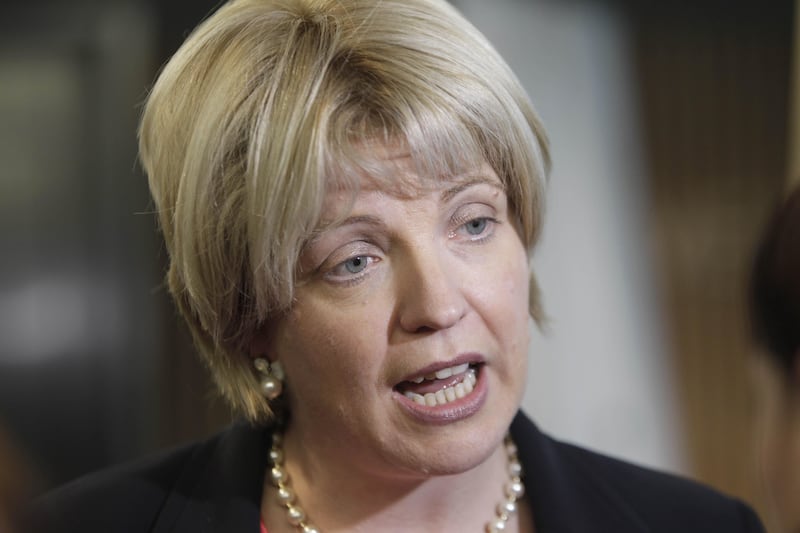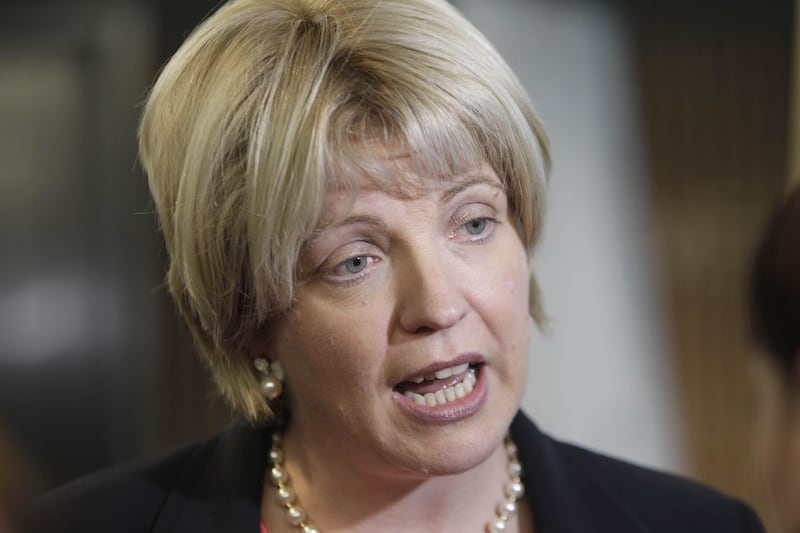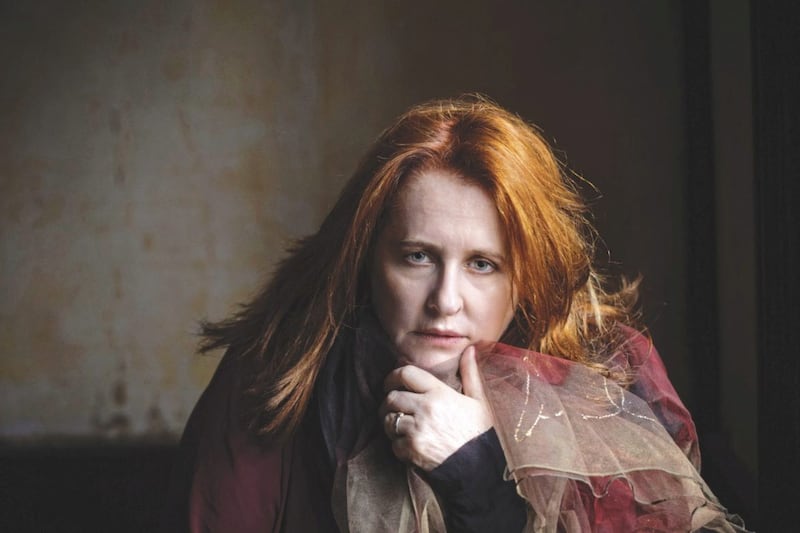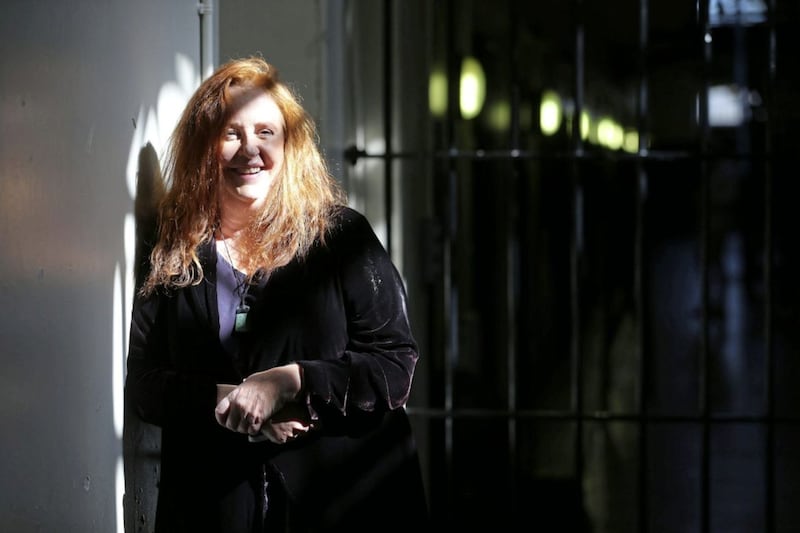ON A downstairs wall inside Crumlin Road Gaol, Mary Coughlan has just spotted a picture of a 'wee woman in a black shawl' – a former inmate – who shares the singer's name.
“Mary Doherty!” she exclaims. “That's my name. I wonder what her story is.”
The Galway-born blues and jazz songstress is at the Crum to launch her latest album Life Stories ahead of two shows at the venue on November 13 and 14. I tell her the gaol is allegedly haunted. 'I'm not surprised,” she replies. “I went down the tunnel for a look. It's horrific. But it is a prison, after all.”
For someone who's done a lot of living in her 64 years, Life Stories is an aptly named album. The ever colourful Coughlan has plenty of stories to tell and does so through her music. For much of her life a prisoner of her own traumatic past, she talks openly about childhood sexual abuse by two extended family members, complicated relationships, alcoholism and how regression therapy helped her break free from the shackles that were holding her back.
“When I stopped drinking, I wanted to know why I was the way I was; why I was angry,” she explains. “Being brought back to my childhood was difficult but ultimately, regression therapy is what freed me up to let go of all the s**t.
“The psychologist told me that when something happens to animals they either flee or they fight, but humans freeze. We never process trauma as a memory. We just have frozen moments so we have to go through a whole process of unfreezing them so we can have them as memories. They can't control us any more.
“As long as you still have frozen moments, you will retreat to that place if someone does something to hurt you. It's almost comfortable. That's why if someone did something to me, I'd become angry like a child. I had a lot of unfreezing to do.”
Coughlan has confronted her demons through song in her previous albums and Life Stories sees her tackle familial issues, addiction and betrayal. As she was approaching her 64th birthday, she wanted to 'go big', so she asked songwriter/producer Pete Glenister to work with her on the album.
When her father passed away two years ago, he left her some money which she decided to use to fund the recording.
“I wanted to make my best album ever,” she says. “And I think I have. I'm very happy with it.”
Family Life was a song she was determined to record after hearing it played on the car radio on route back from her mum's funeral in Galway. She recalls 'crying buckets' when the Blue Nile track came on and her daughter Claire, one of two children from her second marriage to Frank Bonadio, wrote down the name of the track on a scrap of paper.
The name was then stuck on the fridge at Coughlan's home at the side of Little Sugar Loaf mountain in Wicklow, as a reminder that she wanted to include it in a future album.
The first single to be taken from Life Stories, Two Breaking Into One, is about the heartache of betrayal and focuses on the breakdown of her marriage to Bonadio, who had an affair with their nanny. He later had a relationship with Sinead O'Connor, with whom he had a child. But Coughlan is quick to point out she'd already left Bonadio two years before he embarked on a relationship with O'Connor.
“She wasn't 'the other woman',” Coughlan says. “He'd had an affair with the nanny and I couldn't stay with him. I sold him my house as I couldn't bear to stay in it any longer.
“I was with him 16 years and for 11 of those years, I was sober. I couldn't understand why he did that to me. It took me a long time before I felt able to write that song.”
Coughlan's battle with the booze has been well documented but the mum-of-five (she has three children from her first marriage at 19 to Fintan Coughlan) only had her first 'serious' drink at the age of 29. By the time she was 35, she was 'falling down drunk'.
“I was in hospital 32 times with alcohol poisoning,” she says. “But I stopped drinking 26 years ago and haven't touched alcohol since. I was a binge drinker. I could stay sober for four months but then something would happen and I'd go on a binge.”
What were her triggers?
“Anything,” she replies. “A phone call, the weather, good news, bad news. When I stopped, I was drinking three bottles of vodka at a time.”
Seeing a doctor standing over her, poised to intubate her, was the wake-up call she needed to get sober. She attended the Rutland Centre for addiction treatment and went for counselling too. The regression therapy helped her to deal with unresolved trauma.
When she told her mum about the abuse, she was urged not to tell her dad as 'it would kill him'. For a long time she blamed her mum for the lack of validation and support. Her relationship with her dad was complex too, as sometimes his anger took over. But eventually she stopped blaming them both and began to heal.
“Mum couldn't handle it,” she says. “But you know, she grew up in a very different society in Ireland. I had to see where she was coming from.
“When I started to write my book [Bloody Mary], I went down to Galway to see my dad every week. He told me so many stories, things he'd never told mum. Dad just wanted us to be good. He wanted to give us everything he'd never had. He adored the ground we walked on and I adored him, but he only knew the strap.
“I don't hold it against him though. Nowadays I'd hold it against someone more but dad was like so many other dads in those days. It's how things were.”
Coughlan's anecdotes about family life are both poignant and humorous. Her grandmother worked in the kitchen of WB Yeats's home in Gort and before that, in a 'big house' in Ennis, where she lived in a 'cubby hole' under the stairs. Her own dad fared little better, working on a farm in Omagh from the age of 12, picking potatoes.
“The farmer's wife gave the young fellas a cup of tea and a bit of bread three times a day. The pigs got fed better. They all slept on straw. Can you contemplate that?”
She says she's glad society has moved on but admits to feeling despair at the levels of hunger that still exist among children worldwide. It's an anomaly she's been highlighting recently on social media; the amount of global attention given to Covid-19, when thousands of children are dying from starvation: “The virus is a pain in the a**e but that's all it is,” she says.
Lockdown in the tranquillity of the Wicklow Mountains, where she lives with partner John, gave her time to take up new hobbies like baking brown bread. She also practised yoga for 120 consecutive days until she herniated four discs doing the downward dog.
“I fell flat on my face and that put me off the yoga for a while,” she laughs.
After months of not gigging, Coughlan, who's been hailed as a 'living link between Billie Holiday and Amy Winehouse', admits she's slightly nervous about performing again. But she's looking forward to getting back on the road.
“I'm doing gigs in Dublin, Galway, Cork, Killarney and Belfast, of course; two gigs in each place. Every show is sold out.”
Coughlan throws her head back and laughs again: “Put that in your article; it's a sold-out Irish tour. Mind you, there's only 44 people at each gig.”
Mary Coughlan plays Crumlin Road Gaol on Friday November 13 and Saturday November 14. Tickets are limited due to Covid-19 regulations and are available from crumlinroadgaol.com. Life Stories out now on Amazon, Amazon Music and iTunes
